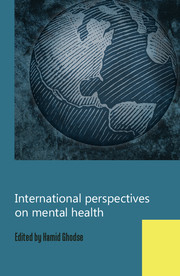Book contents
- Frontmatter
- Contents
- List of contributors
- Preface
- Africa
- Asia
- Afghanistan
- Armenia
- Azerbaijan
- Bahrain
- Bangladesh
- Brunei Darussalam
- Cambodia
- Hong Kong
- India
- Iran
- Iraq
- Israel
- Japan
- Jordan
- Kuwait
- Laos
- Lebanon
- Malaysia
- Mongolia
- Nepal
- Sultanate of Oman
- Pakistan
- The Philippines
- Qatar
- Singapore
- South Korea
- Sri Lanka
- Syrian Arab Republic
- Tajikistan
- Thailand
- Timor-Leste
- Turkey
- United Arab Emirates
- Yemen
- Australasia
- Europe
- North America
- South America
- Index
Azerbaijan
from Asia
Published online by Cambridge University Press: 02 January 2018
- Frontmatter
- Contents
- List of contributors
- Preface
- Africa
- Asia
- Afghanistan
- Armenia
- Azerbaijan
- Bahrain
- Bangladesh
- Brunei Darussalam
- Cambodia
- Hong Kong
- India
- Iran
- Iraq
- Israel
- Japan
- Jordan
- Kuwait
- Laos
- Lebanon
- Malaysia
- Mongolia
- Nepal
- Sultanate of Oman
- Pakistan
- The Philippines
- Qatar
- Singapore
- South Korea
- Sri Lanka
- Syrian Arab Republic
- Tajikistan
- Thailand
- Timor-Leste
- Turkey
- United Arab Emirates
- Yemen
- Australasia
- Europe
- North America
- South America
- Index
Summary
Azerbaijan is a nation with a Turkic population which regained its independence after the collapse of the Soviet Union in 1991. It has an area of approximately 86 000 km2. Georgia and Armenia, the other countries comprising the Transcaucasian region, border Azerbaijan to the north and west, respectively. Russia also borders the north, Iran and Turkey the south, and the Caspian Sea borders the east. The total population is about 8 million. The largest ethnic group is Azeri, comprising 90% of the population; Dagestanis comprise 3.2%, Russians 2.5%, Armenians 2% and others 2.3%.
The gross domestic product (GDP) per capita in 2002 was US$755 and 0.9% of the GDP was allocated to health. The proportion of the national budget spent on the overall health system is 6.6% and mental health expenditure is 0.33% of the total national budget. The numbers of physicians (of all specialties), paramedical staff and beds per 10 000 population are, respectively, 36.3, 74.6 and 86.0 (State Statistical Committee, 2002).
Azerbaijan is one of the first republics of the former Soviet Union to face a large-scale refugee problem. At present there are 819 000 refugees and internally displaced people, who had to leave their homes owing to the 1988–93 armed conflict with Armenian military forces in Nagorno- Karabakh (Ismayilov & Ismayilov, 2002).
Current mental health system
In line with the old Soviet model, mental healthcare in Azerbaijan is oriented to the institutional approach, but the conditions within the psychiatric institutions do not meet basic standards. Primary care for people with mental illness is not well developed, although almost all kinds of service are available at the level of specialist care. The principal mental healthcare providers are psychiatric hospitals, psychiatric dispensaries and psychiatrists in private practice.
There are 5.0 psychiatrists per 100 000 population. Each administrative district of the country has an out-patient clinic with a consulting room for a psychiatrist. Moreover, eight cities have inter-regional psychoneurological dispensaries (PNDs), with out-patient and in-patient facilities. In the city of Baku there are two PNDs: one of them provides services to children, the other to adults (Aliyev, 1999).
- Type
- Chapter
- Information
- International Perspectives on Mental Health , pp. 73 - 77Publisher: Royal College of PsychiatristsPrint publication year: 2011

